Best of 2022: Round 1
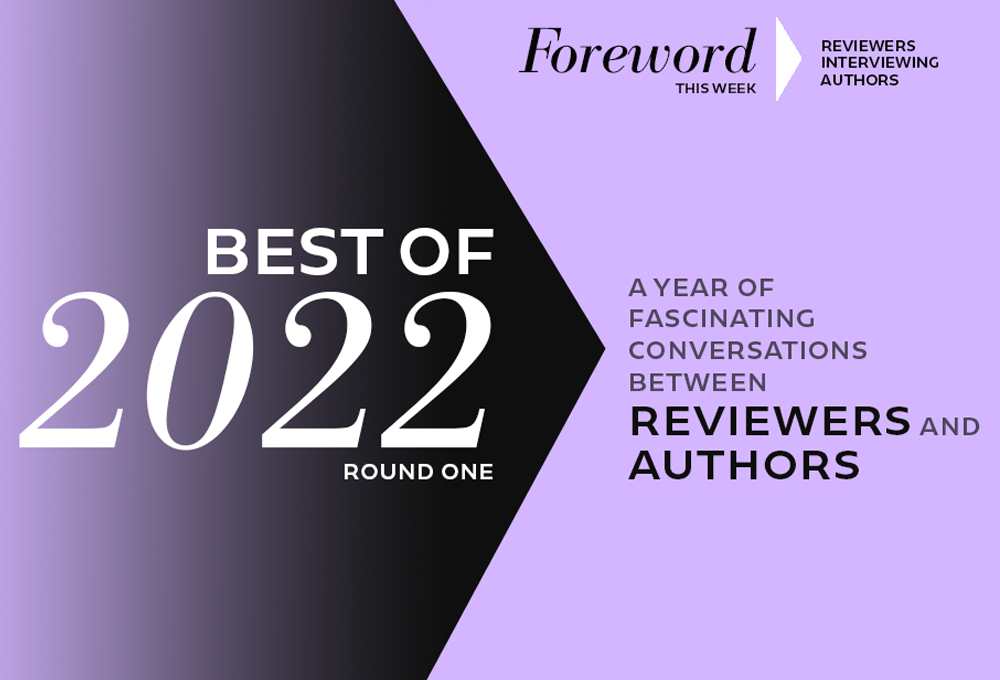
As we do at the very beginning of every year, this week we’re offering you an assemblage of favorite questions and responses from the previous year’s fifty-plus interviews between reviewers and authors. Please give this an attentive read—we know you’ll find a few nuggets of wisdom to help make 2023 a year of great gains and growth.
Reviewer Rebecca Foster Interviews Rebekah Iliff, Author of Champagne for One: A Celebration of Solitude
The timing of your book seems perfect. Loving—or at least tolerating—solitude is of perennial importance, but perhaps especially so during a pandemic. What lessons do you hope your readers will draw about the potential benefits of enforced isolation?
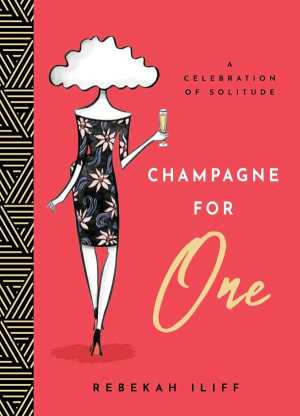
I believe wholeheartedly that learning how to embrace solitude and “live with one’s self” is the surest path toward being able to function in society. In essence, it’s a core part of being a human. We need solitude as much as we need deep, meaningful relationships with others. While the pandemic was a difficult time for some, it was actually the impetus for many to make shifts in their lives that were likely needed. I hope readers can reframe the idea of being alone and seeking solitude as a positive, life-giving experience, as opposed to something negative. Our culture does a fairly awful job of painting single-dom, solitude, being alone, as anything other than borderline pathetic, or something to be “fixed.” It’s a shallow, untrue narrative I’m attempting to rectify in a fun, lighthearted way.
Reviewer Rachel Jagareski Interviews Randy Woodley, Author of Becoming Rooted: One Hundred Days of Reconnecting with Sacred Earth
How does your background as a Christian pastor dovetail with your Indigenous spirituality? What are some of the communalities? And the differences?
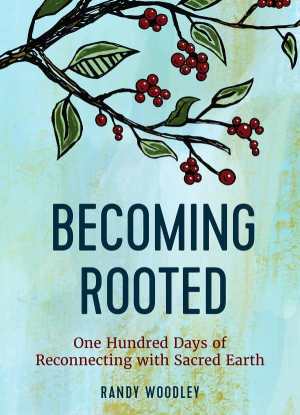
Western Christianity is not compatible with Indigenous values but the teachings of Jesus are. Western Christianity has proven too many times its inability to live up to the values of Jesus. My wife and I have not considered ourselves Christians for well over a decade but we are Indigenous tradition-keepers who follow Jesus. When one reads his stories, it’s easy to see why our Indigenous people can relate to Jesus. His values are very similar. His purpose to convert people to a more harmonious way of living is what all great Indigenous leaders have taught. The Western worldview does not understand story well but Indigenous people do. In many ways, I think our Indigenous worldview is much closer to Jesus’ than Western Christianity, and we understand him better.
Reviewer Melissa Wuske Interviews Sherrie Campbell, Author of Adult Survivors of Toxic Family Members: Tools to Maintain Boundaries, Deal with Criticism, and Heal from Shame After Ties Have Been Cut
The path to personal healing, described in the book, is a deeply rewarding yet difficult process. Can you give some words of encouragement for those moments when people may wonder whether overcoming shame and developing self-love will be worth the struggle?
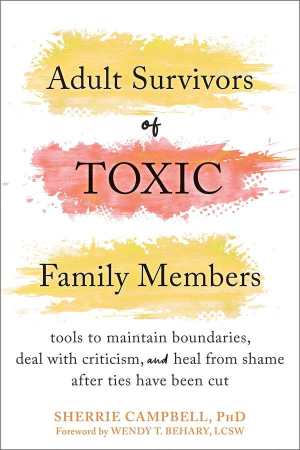
My advice is never to give up. I have provided a path up the mountain of healing, clearing the cobwebs of confusion all along the journey in this book, and will continue to do so in subsequent books, as well. The best revenge is to move on and to be happy and not allow your toxic family members to steal even one more minute of your life. They have taken enough, and you have paid your dues. Keep your boundaries firm and shift the focus from your abusers back onto yourself and the life you now have the freedom to create. You may always feel some loneliness inside, but remind yourself it is better to be lonely than disempowered, controlled, manipulated, and miserable. Life will get better. Stay the course.
Reviewer Rachel Jagareski Interviews Rebecca Wragg Sykes, Author of Kindred: Neanderthal Life, Love, Death, and Art
The climate crisis underscores the wastefulness and consumerism of our modern lifestyles. What lessons can Neanderthals teach us about living more lightly on the Earth?
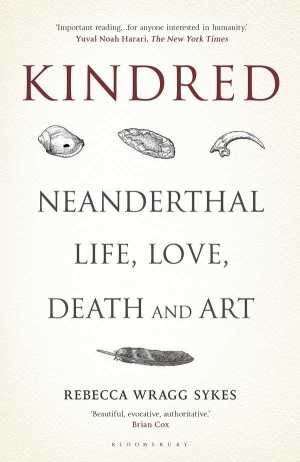
Neanderthals lived through many cycles of climate change, including one period even warmer than present (and where we may well be heading in the next century). However, if things got tough then they had more possibilities to move than our massive and dense human populations today. One striking thing is that extinction may often have included chance, and cleverness might not necessarily have been enough to avoid it. We can see that some of the early Homo sapiens dispersing into Eurasia well before 50,000 years ago also largely disappeared around the same time as Neanderthals, for example. There’s an impression emerging from current research that what set apart those who did persist might have been conviviality and stronger social networks. We can use our inventiveness today to tackle the climate crisis, but technology isn’t enough; it’s crucial that we also draw on our unique capacity for collaboration and cooperation.
Reviewer Kristine Morris Interviews Bernd Brunner, Author of Extreme North: A Cultural History
Beyond its historical and cultural interest, what does your book reveal about the reasons there is so much division between peoples, cultures, religions, and races today?
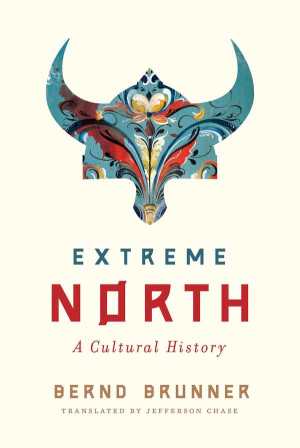
Well, there certainly are cultural and religious differences, and also differences in the way people look, that give certain people or groups reasons to call them “other,” or “not like me.” I think that one problem is that many people see their own culture as an absolute, the standard against which all others should be measured. The whole concept of “race” is very unfortunate, and because of the role it played in Nazi ideology, it’s a term not used in Germany today.
Reviewer Rebecca Foster Interviews Dave Richo, Author of Ready: How to Know When to Go and When to Stay
You’ve been a psychotherapist for more than fifty years. What are some of the things you have learned about human nature, and about yourself, in that time?

I have learned that we all face the same issues in life:
-
How can I feel compassion for myself when I hold back and at the same time ask for the grace to take a step forward?
-
What is making me wait for permission to leave what doesn’t work?
-
How will I feel ashamed or guilty about making a move? How can I put those inhibitions aside?
-
Is there a way to make a choice now rather than waiting for the courage to do so?
-
What fears are holding me back from what comes next on my journey?
-
How can I face my fear and still stand upright?
-
How can I let my fear pass through me like lightning through a lightning rod?
-
How can I let fear go and let freedom in, or rather, out?
-
What will it take for me to believe I will survive making a move, even thrive thereafter?
-
Who are the allies, both mortal and immortal, I can trust to accompany me as I walk through the dark valley?
-
Can I believe I never walk alone?
Reviewer Kristine Morris Interviews Beebe Bahrami, Author of The Way of the Wild Goose: Three Pilgrimages Following Geese, Stars, and Hunches on the Camino De Santiago
Your book shares your fascination with the matriarchal, pagan cultures that pre-dated Christianity in Europe before a fierce patriarchy nearly obliterated them. What do you feel Western civilization lost with the imposition of a patriarchal worldview? Do you see a way to bring what was good about this earlier worldview to bear on world events today? Why or why not?
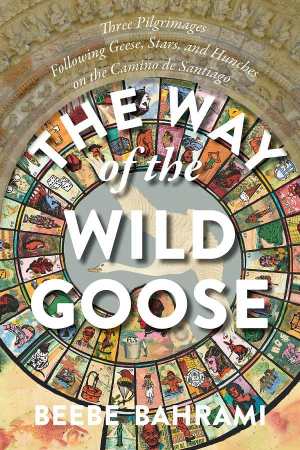
The patriarchal worldview has severed humans from nature, the planet, even our own bodies. It severed Earth from sky, placing a god up there where all things are good and us down here where all things are blemished. It changed our relationship to the Earth, which became no longer a “thou,” but an “it,” and it did the same to human relationships. It made everything, be it land, women, or children a potential possession, since patriarchy depends on a patriarch and he depends on sure paternity. Everything—land, materials, bodies (human, animal, and plant), and labor became an object, a potential commodity, and not a being.
Patriarchal systems are not only unjust and immoral, they knocked our world into imbalance, destruction, greed, and ruin. If we reclaim and reconnect to ourselves—our bodies, souls, minds, and our planet—and let the gods walk down here as much as up there, and show all life reverence and respect, we can achieve greater balance and can steer ourselves away from devastation and destruction. I actually think there are many people striving to restore reverence and balance in all things. Their loud voices and anger right now may be a sign that their numbers are growing and patriarchy is crumbling and losing its entitlement to do whatever it pleases without care for others or the planet.
Reviewer Melissa Wuske Interviews Gillian Ranson, Author of Front-Wave Boomers: Growing (Very) Old, Staying Connected, and Reimagining Aging
How have you seen the importance of generational identity and community through your research? How do similarities and difference across the generations help and hinder community and identity?
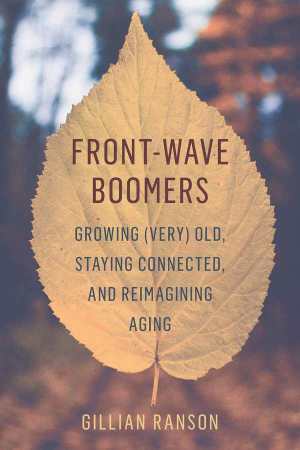
One of the risks of aging is that as we get older our community connections tend to be with people who are roughly the same age as us. In a sense, we self-segregate, putting ourselves into an ageist silo. Yet connections to generations other than our own, especially those younger than our own, are essential for many reasons, the most important of which is that they keep us connected to the wider world. Those of us with children and grandchildren we are close to have intergenerational ties built in, but we can’t exploit or overuse these family ties. And they aren’t enough to build the kind of intergenerational communities we need. There are similarities and differences within, as well as between generations. Age shouldn’t be the only differentiator. Some of those similarities and differences can allow people to connect across the generations and form rewarding relationships in the process.
In my research, I found many examples of ongoing and sustaining intergenerational connections, at both the individual and community level. At the individual level, I think about Diana, 73 when we met, who rented out rooms in her home to international graduate students. She showed me a wonderful video of “the gang” dancing with her in the kitchen as they prepared a meal. At the community level, I think of Bonnie, also 73 when we met, who lived in a cohousing community. All nineteen households had their own completely self-contained units, but shared common space, including a community kitchen and dining room. They also shared a commitment to community support. Ages of residents ranged from the mid-teens to the mid-eighties. Shared interests also brought the generations together; Ursula’s professional life in music put her in touch with many younger people, including students whom she mentored—and who helped her too. Anne noted the “tons of young knitters” getting involved in her knitting community. Paul and his wife were active in a volunteer grandparent organization.
Reviewer Eileen Gonzalez Interviews Arianne Zwartjes, Author of These Dark Skies: Reckoning with Identity, Violence, and Power from Abroad
Naturally, your book focuses on the perspective of an American in Europe, since that is who you are and how you experience the world. You also have close relationships with people from other countries, most notably your wife, who was born in Russia. Do you think there is anything that people from European nations could learn from America or the American way of life, even if it’s only in a “what not to do” way?
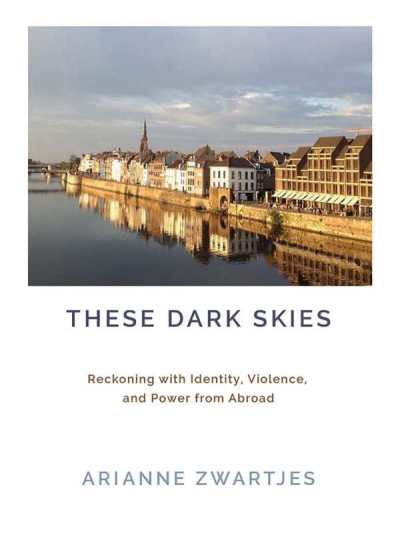
Through my conversations with my wife, Anna, who as you mention grew up partially in Russia, is the extent to which we in the US—at least, those of us steeped in white Anglo-Saxon Protestant culture in the US—tend to think dualistically, in terms of “good” and “bad” … which likely comes from the strong British and northwestern European heritage of that culture. This leads us, generally speaking, to often think in terms of “good people” and “bad people,” rather than seeing all humans, including ourselves, as complex mixtures of flaw and fallibility—and as I write in the book, such dualistic thinking can make it hard to see ourselves clearly, or to admit to the darknesses we find in ourselves, because those darknesses so threaten our conception of ourselves as “good people.” The more I think about this dualism, the more I see places where it subtly or explicitly underlies many of our cultural constructs, which I find really fascinating. This is an area I think is interesting for both northwestern Europeans and people from the US—or at least those of us who are sort of culturally-WASPy Americans—to think more about.
Matt Sutherland
